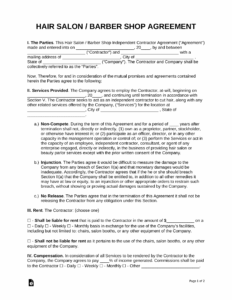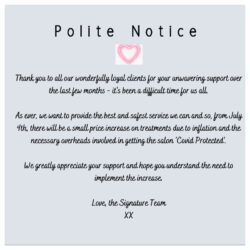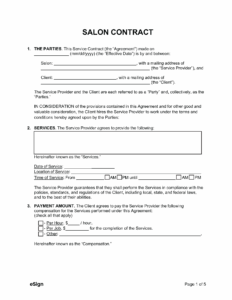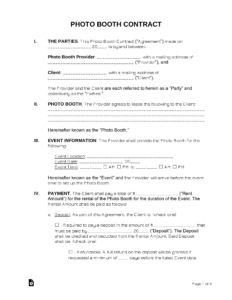Stepping into the world of salon ownership or becoming an independent stylist offers incredible freedom and opportunity. Whether you’re a salon owner looking to expand your team without the full commitment of employment, or a stylist ready to manage your own clientele, the booth rental model is a popular choice. This arrangement allows stylists to operate as independent contractors within an established salon space, sharing resources and benefits. However, like any business relationship, clarity and mutual understanding are paramount to ensuring a smooth and successful journey for everyone involved.
That’s where a well-crafted agreement comes into play. You might be wondering how to formalize such an arrangement without getting bogged down in legal complexities. The answer lies in utilizing a robust salon booth rental contract template. This essential document serves as the bedrock of your professional relationship, setting clear expectations and preventing misunderstandings before they even have a chance to arise. It’s not just a formality; it’s a vital tool for peace of mind and business stability.
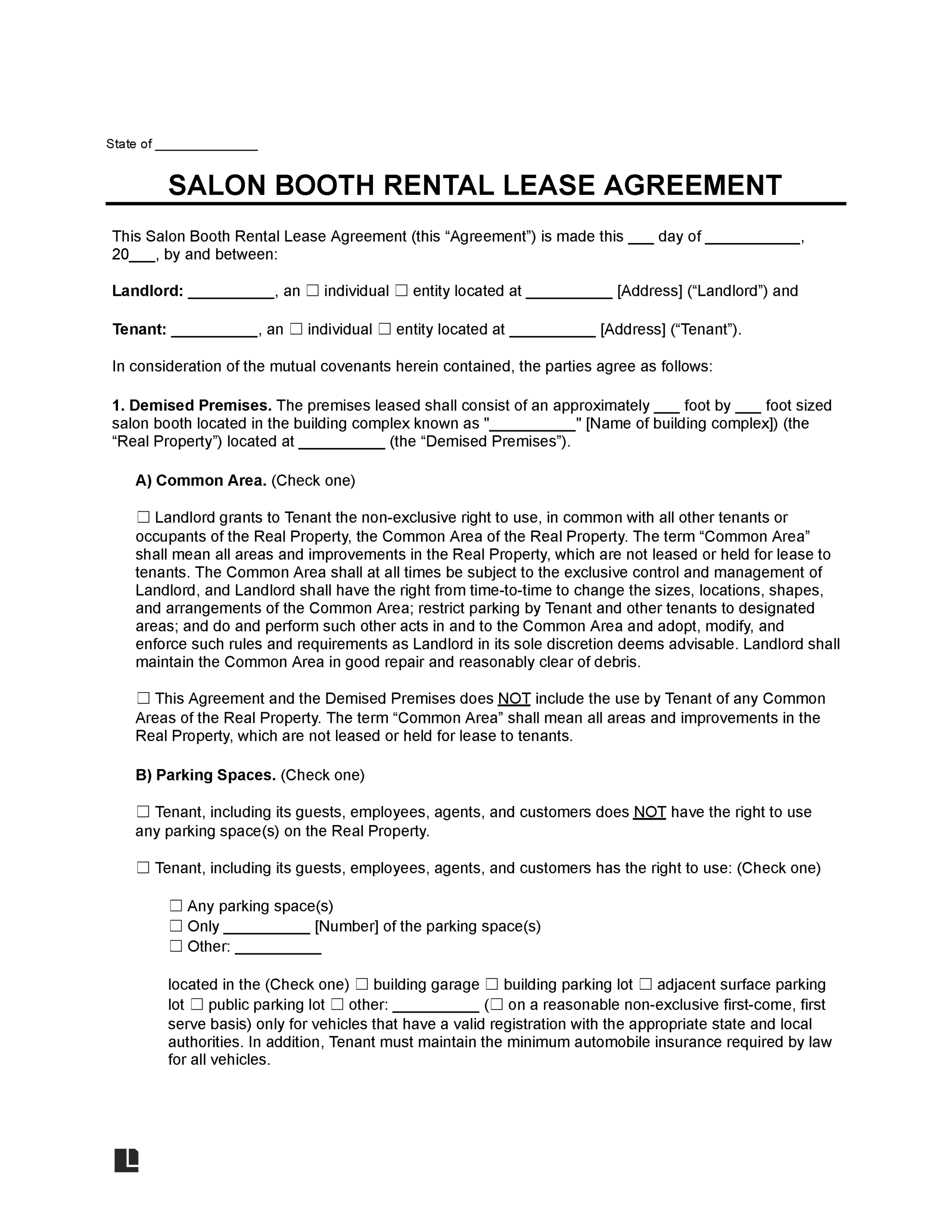
Why a Comprehensive Salon Booth Rental Agreement is Non-Negotiable
Imagine starting a new venture with someone based on a handshake and good intentions. While trust is wonderful, when it comes to business, a detailed contract is your best friend. For salon owners, a solid booth rental agreement protects your property, reputation, and ensures a cohesive environment. For stylists, it clarifies your rights, responsibilities, and the terms of your workspace. Without one, you’re potentially opening the door to disputes over rent, shared facilities, salon policies, or even client interactions. A well-defined agreement ensures that both parties understand their roles and obligations from day one, fostering a professional and harmonious working relationship.
Key Elements to Include
A truly effective salon booth rental contract template goes beyond the basics. It meticulously outlines all aspects of the rental arrangement. This includes, first and foremost, the full legal names of both the salon owner and the renting stylist, along with a precise description of the specific booth or area being rented within the salon. Clarity on the physical space helps avoid any ambiguity regarding what is included in the agreement.
Beyond the identities of the parties and the property details, here are some critical provisions that should always be a part of your agreement:
- Term of Agreement: Clearly state the start and end dates of the rental period, as well as any options for renewal and the process for exercising those options.
- Rent and Fees: Detail the exact rent amount, when it’s due, acceptable payment methods, and any penalties for late payments. Also, specify any additional fees, such as for utilities, supplies, or shared services.
- Utilities and Expenses: Define who is responsible for paying for electricity, water, internet, and other operating expenses.
- Responsibilities of Both Parties: Outline the duties of the salon owner (e.g., maintaining common areas, providing certain equipment) and the stylist (e.g., maintaining their booth, client service standards, cleanliness).
- Insurance Requirements: Specify what type of liability insurance the stylist must carry to protect against accidents or professional errors.
- Licensing and Permits: Ensure the stylist holds all necessary state and local licenses and permits to operate legally.
Protecting Both Parties
Beyond the operational specifics, a robust contract template also addresses the "what-ifs." It should include clauses about liability, indemnification, and dispute resolution mechanisms. For instance, what happens if a client is injured in the salon? Who is responsible for damages to the property? Having these scenarios addressed upfront can save significant headaches and legal costs down the road. Furthermore, clearly defined salon policies, such as hours of operation, client booking procedures, and product usage guidelines, contribute to a professional atmosphere and prevent friction between independent stylists and salon management.
Finally, remember that while a salon booth rental contract template provides an excellent starting point, it’s always wise to customize it to your specific situation. Every salon and every stylist brings unique needs and expectations to the table. Taking the time to tailor the document ensures it accurately reflects your mutual agreement and provides the strongest possible foundation for your business relationship. Consider having a legal professional review your finalized document to ensure it complies with all local regulations and fully protects your interests.
Navigating the Specifics: Customizing Your Contract
While a generic salon booth rental contract template offers a great starting point, the true strength of your agreement will come from its customization. No two salons are exactly alike, and no two stylists have the same needs or operating style. Taking the time to tailor the template to your specific situation ensures that all unique aspects of your arrangement are addressed, leaving no room for guesswork or future disagreements. This might involve detailing specific equipment provided by the salon, outlining specific marketing expectations for independent stylists, or even clarifying rules around client confidentiality and data.
One common pitfall without a detailed, customized agreement is miscommunication regarding shared resources or responsibilities. For example, will the stylist contribute to the cost of communal cleaning supplies, or is that covered by the salon owner? What happens if a piece of shared equipment breaks down? A thorough contract addresses these practicalities. Consider including points on:
- Salon Policies: Clearly outline general salon policies such as opening and closing procedures, booking systems, dress code, and client interaction guidelines.
- Product and Supply Usage: Specify whether stylists must use salon-provided products or if they can bring their own, and who covers the cost of consumables.
- Marketing and Branding: Define how stylists can market their services within the salon, and how the salon’s brand interacts with the stylist’s individual brand.
- Termination Clauses: Outline the conditions under which either party can terminate the agreement, including required notice periods, ensuring a clear and fair exit strategy if needed.
Having these details explicitly written down prevents potential conflicts and helps maintain a professional working environment. It’s much easier to refer to a written agreement than to try and recall a verbal understanding when issues arise.
Even with the best salon booth rental contract template, consulting with a legal professional is a smart move. They can review your customized document, ensuring it complies with all local, state, and federal laws, particularly concerning independent contractor status versus employee status. This distinction is crucial for tax purposes and liability. A lawyer can also help you understand any specific clauses that might have significant implications for your business, providing an added layer of security and confidence.
Ultimately, a detailed and carefully considered agreement fosters a sense of security and clarity for both salon owners and renting stylists. It sets the stage for a positive, productive, and long-lasting professional relationship built on clear expectations and mutual respect.
Establishing clear guidelines from the outset is the cornerstone of any successful business relationship, especially in the vibrant and dynamic salon industry. A well-structured agreement creates a foundation of trust and professionalism, allowing both parties to focus on what they do best: delivering exceptional beauty services. By meticulously outlining every aspect of the rental arrangement, you’re not just creating a document; you’re building a framework for collaboration and growth.
This proactive approach minimizes misunderstandings and provides a reliable reference point for any questions that may arise. When both the salon owner and the stylist operate under a shared understanding of their rights and responsibilities, the entire salon environment thrives. It promotes efficiency, reduces stress, and ultimately contributes to a more prosperous and enjoyable experience for everyone involved, from the business owners to the talented professionals, and most importantly, the cherished clients.
